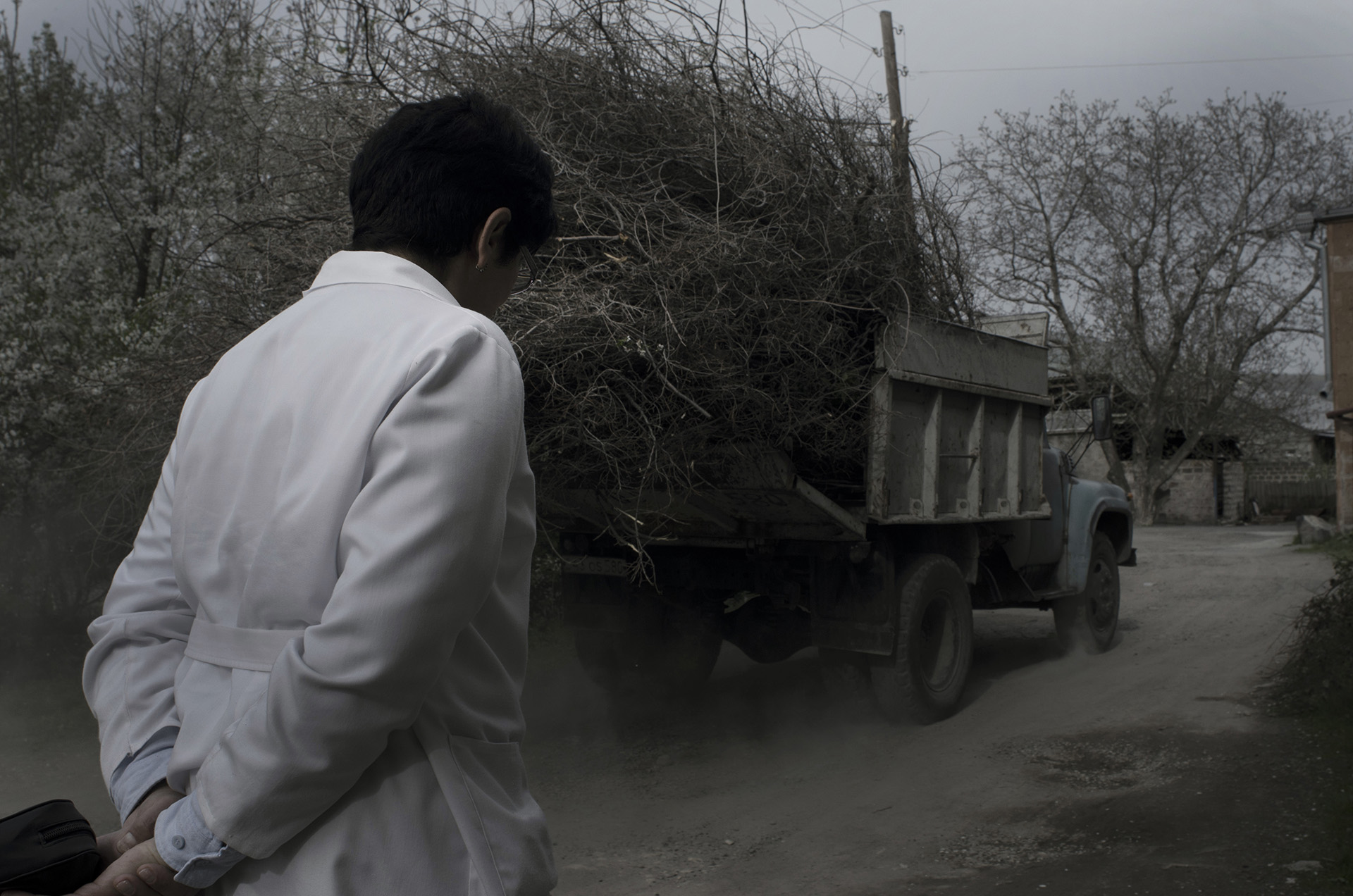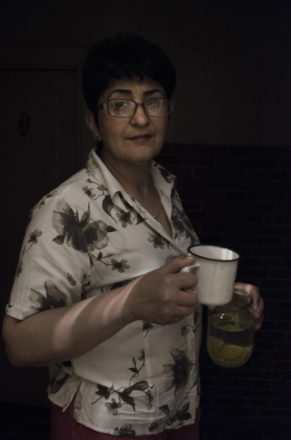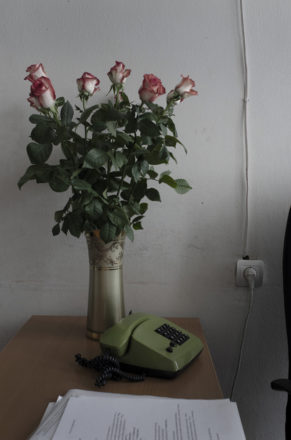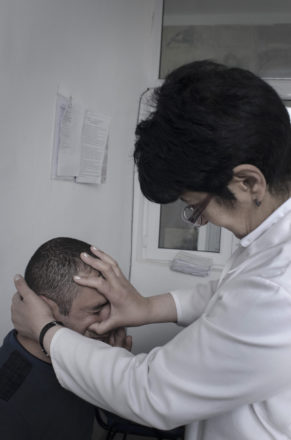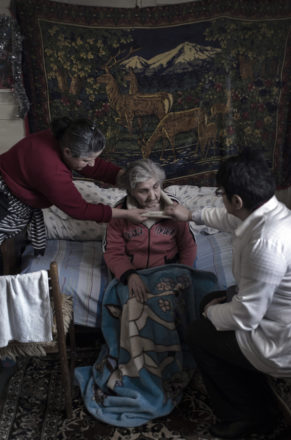After thinking over my text long, I eventually decided to put down Nune’s direct interview, leaving my questions out.
“I haven’t had an alternative in the choice of my profession, since I have grown up in a family of doctors and haven’t imagined myself in any other profession. I have interacted with patients since childhood; my days have passed in different hospitals. My father was a surgeon, my mother – a specialist of blood. I have been present at surgeries since 4.After the graduation I have worked in Charentsavan as a therapist, then as a neurologist at the 5th polyclinic in Yerevan. Because the opportunity of thinking and acting freely was very limited at the city clinics, I decided to move to the village after getting a training of a family doctor. It’s possible to be more operative here, to rely on your acumen. You can have a huge impact on discovering illnesses earlier, bringing the possibility of the first aid, making the first discoveries. Having no serious analyses at hand, only the complaints and the symptoms of the patients and relying on your own skills you can go for a diagnosis.
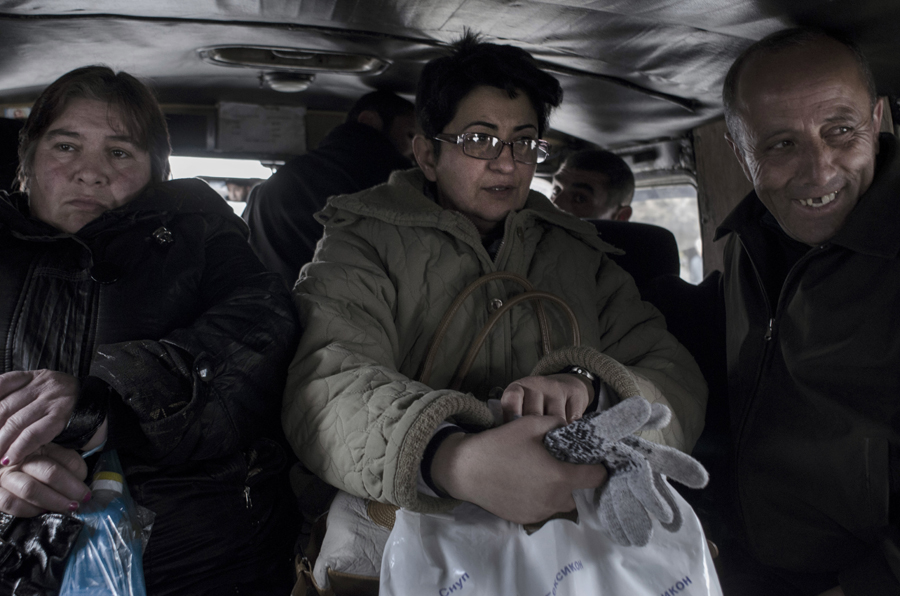
Doctor Yeghiazaryan on her way to work. Only one bus serves the needs of people in the village of Kaputan. It comes from Abovyan only four times a day, that’s why it’s always overcrowded. Yeghiazaryan has to change two buses to get to work.
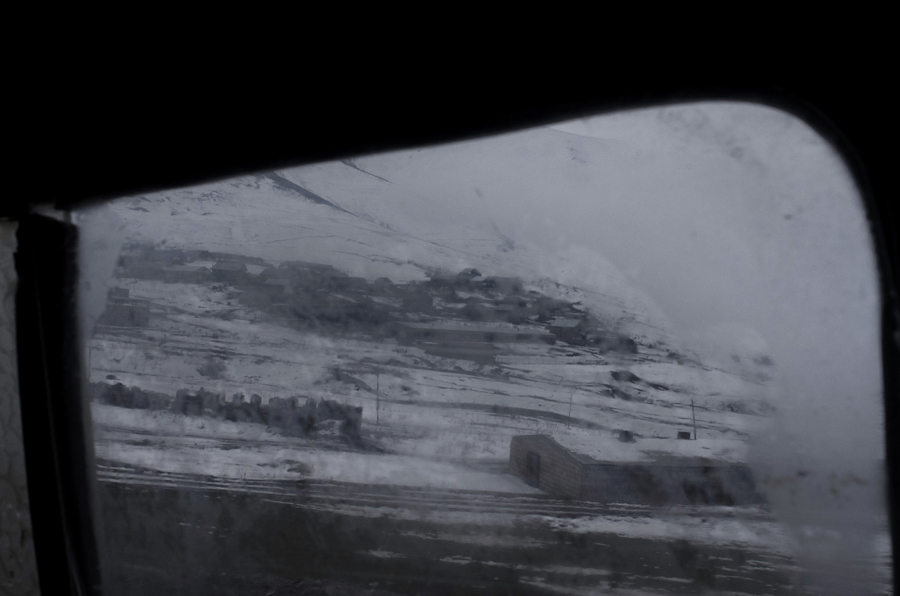
A view from the bus window: the village of Kaputan.
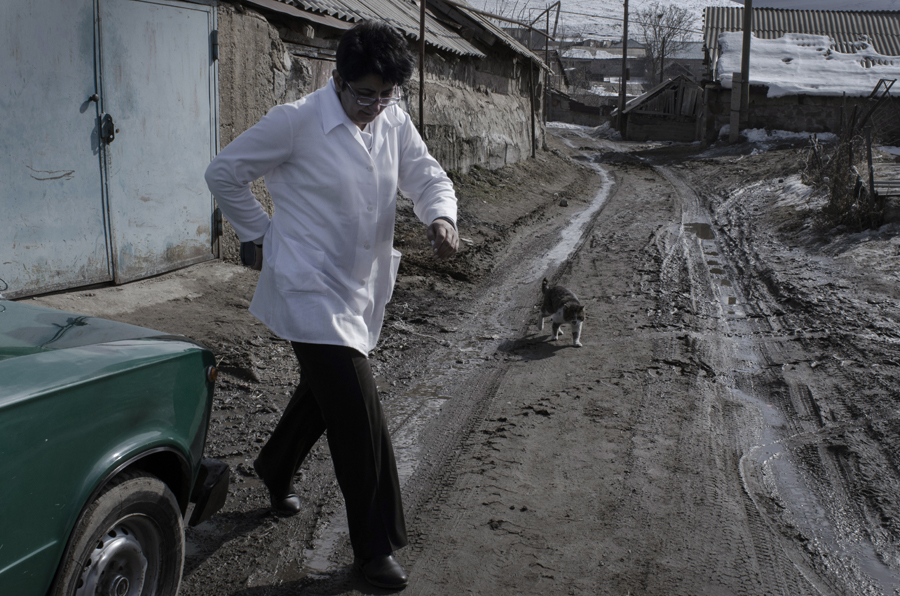
The doctor’s round in Kaputan village.
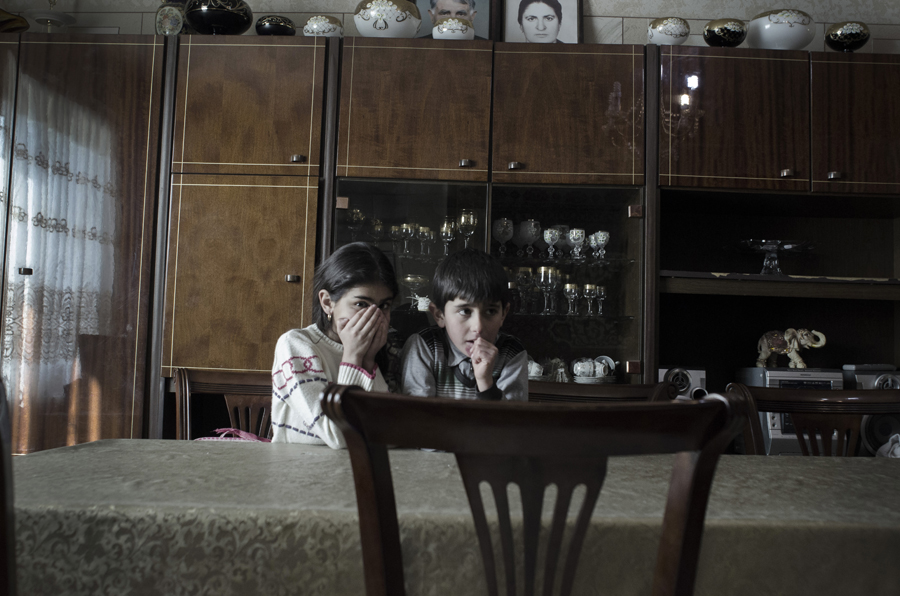
Children following doctor Yeghiazaryan in the village of Hatis
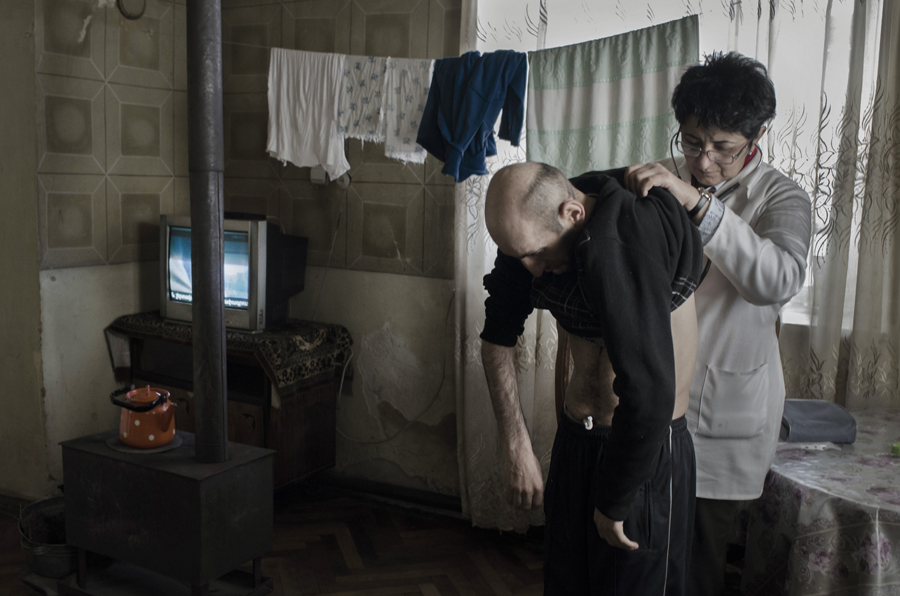
Yeghiazaryan is examining a patient in the village of Hatis. The man who had fallen from horse was diagnosed with intestinal volvulus and had to undergo a surgery. He had remained in the special care ward for 88 days and had to spend a long-term post-surgery period at home.
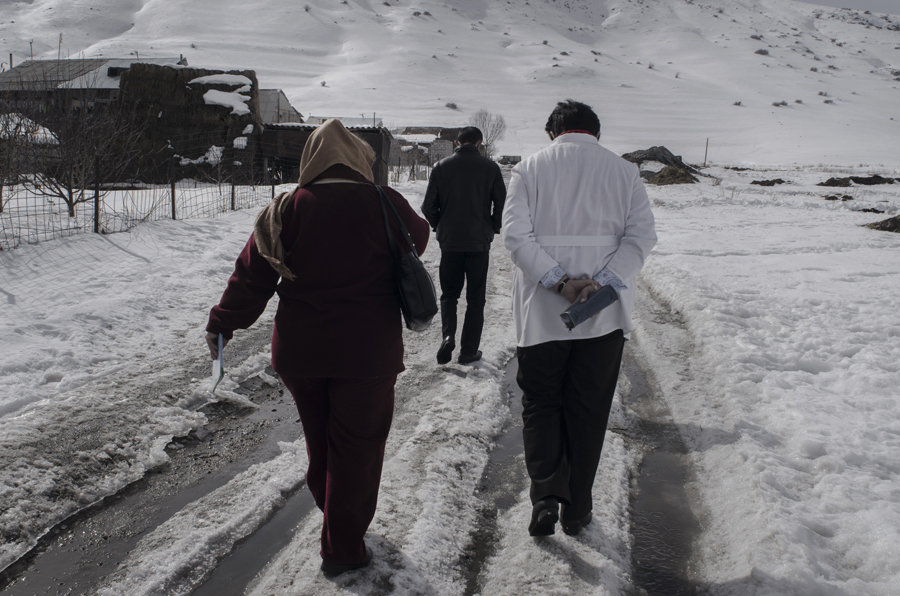
The doctor’s round in the village of Hatis.
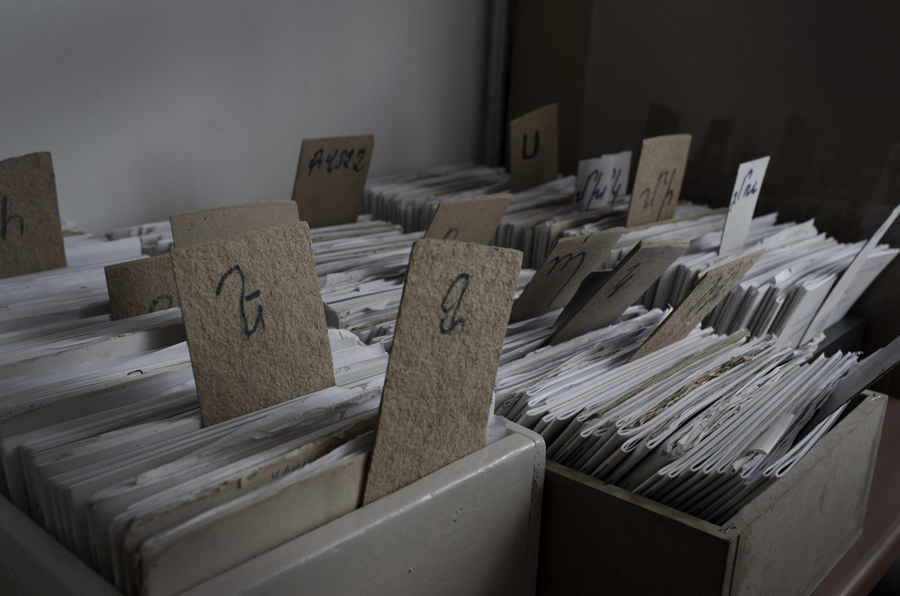
Medical cards’ archive in doctor Yeghiazaryan’s office in the village of Kaputan.
Nune Yeghiazaryan, 55, a family doctor, at home.
Flowers inside of the building of the regional administration.
About 85-90 percent of the diagnoses get confirmed. Many diseases have become younger, such as cancer, cardiovascular diseases and leg varicose. Besides these neurosis is very widespread, which gets unconsciously disguised under other complaints, beneath other illnesses. The reason of neurosis is the social, financial situation of people, the quality of their living. The most affected are the young women, whose husbands are out of the country for work or do not work at all.
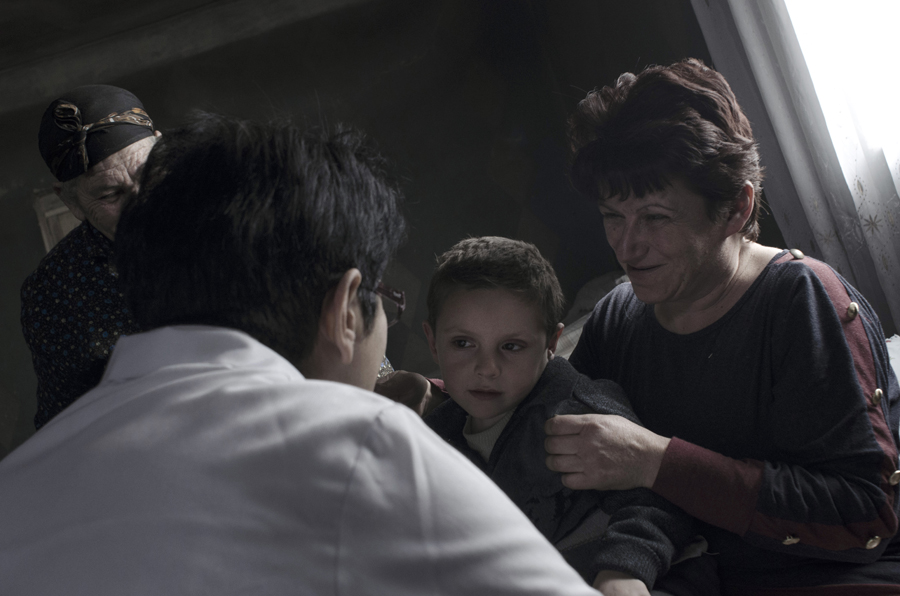
The village of Kaputan. The doctor is examining Narek, a child whose parents took him to the physician’s office in the village of Kaputan when the boy suddenly felt bad in the morning, wetting his pants and refusing to talk to anyone. The boy was later diagnosed with epilepsy.
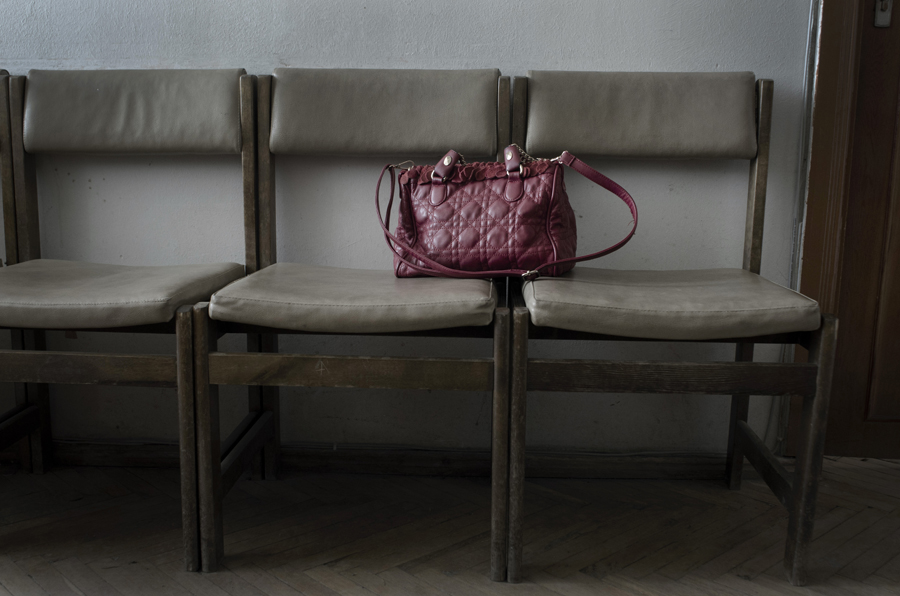
Inside the building of the regional administration. The doctor’s bag left on the chair, Hrazdan.
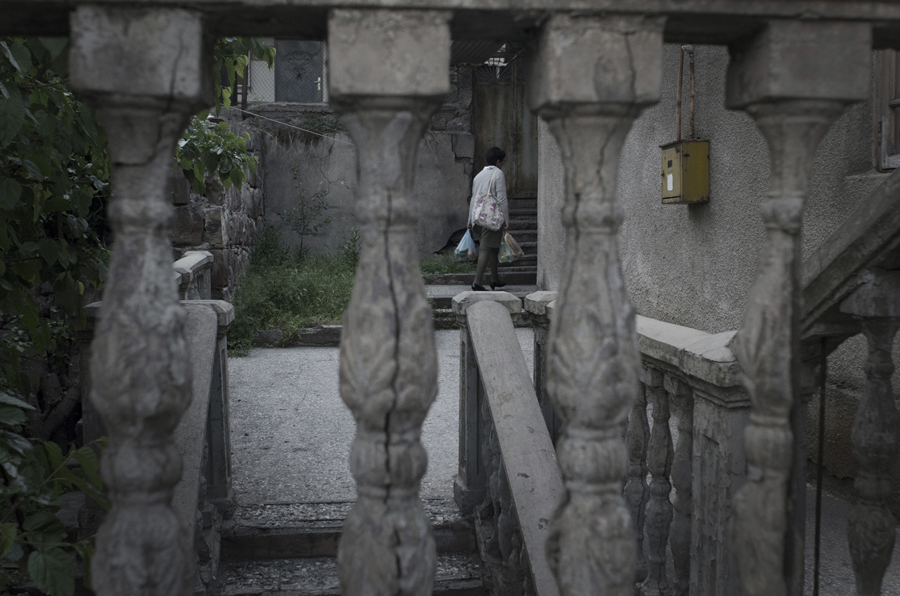
Yerevan, doctor Yeghiazaryan on her way home from work.
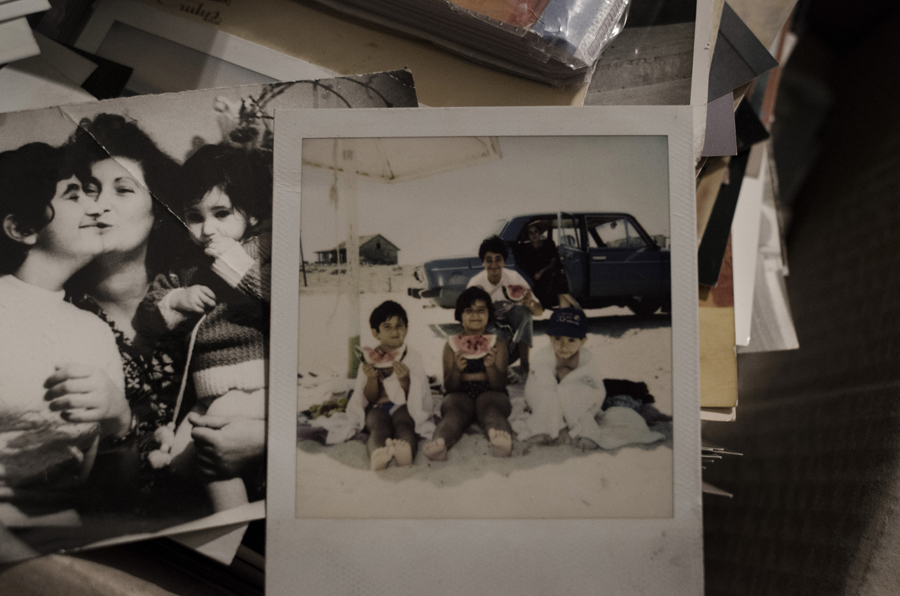
Yerevan, the photo on the left: doctor Yeghiazaryan with her mother and sister in her childhood. Doctor Yeghiazaryan with her daughters and relatives in the central photo.
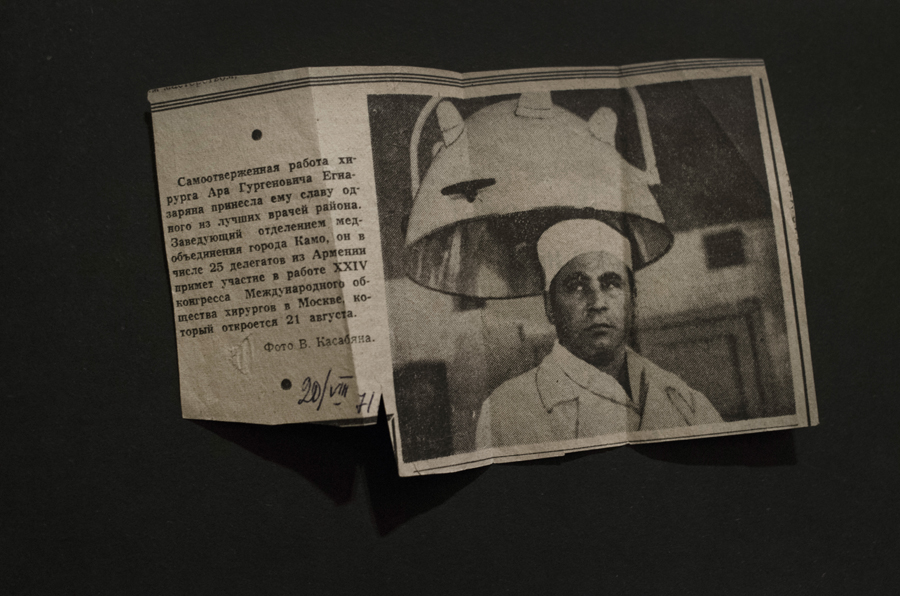
The photo of Nune Yeghiazaryan’s father – Ara Yeghiazaryan – in an operating room in the town of Kamo (Gavar) published in Communist newspaper, 1971.
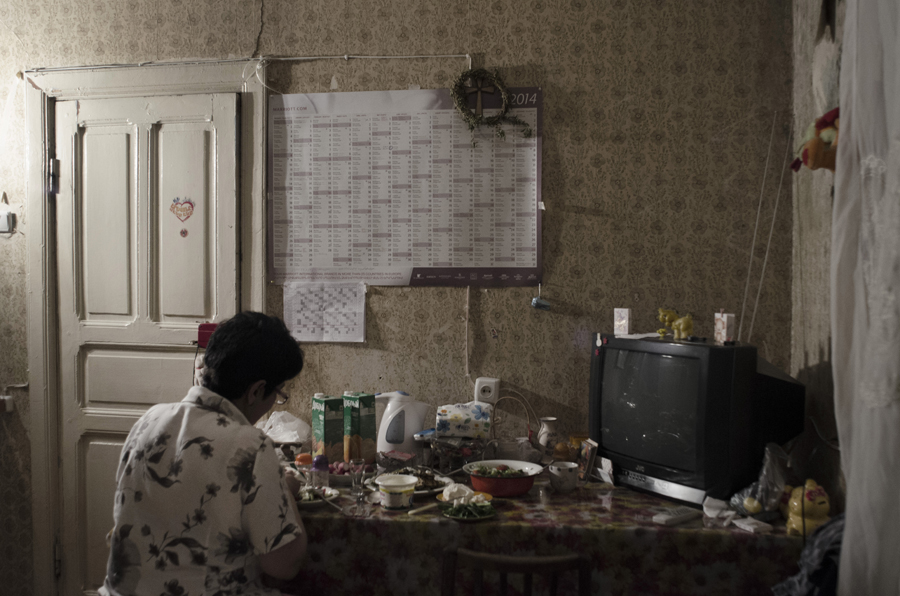
Having dinner at home, Yerevan.
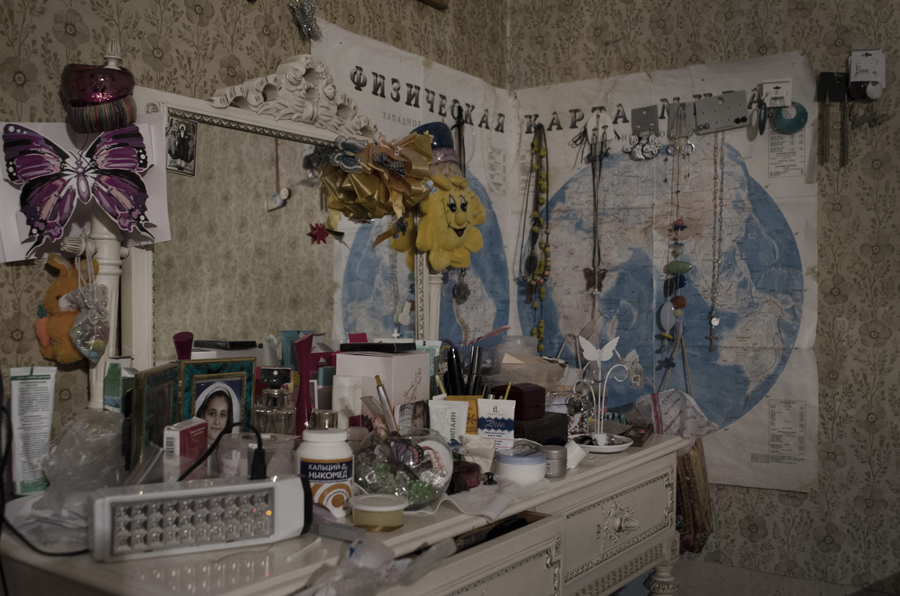
The doctor’s one-room flat in Yerevan, where she lives.
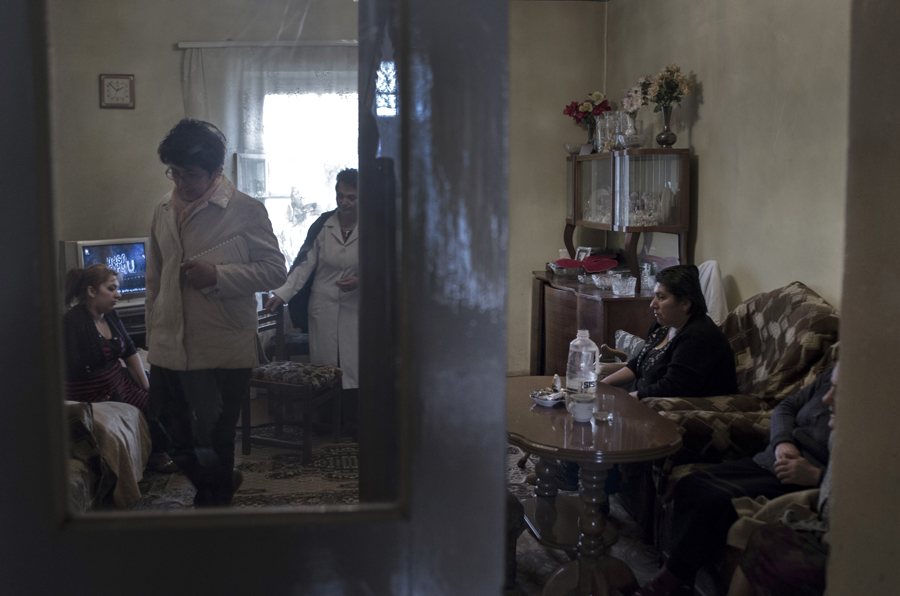
Nor Gyugh. The doctor at a regular visit to a patient’s house.
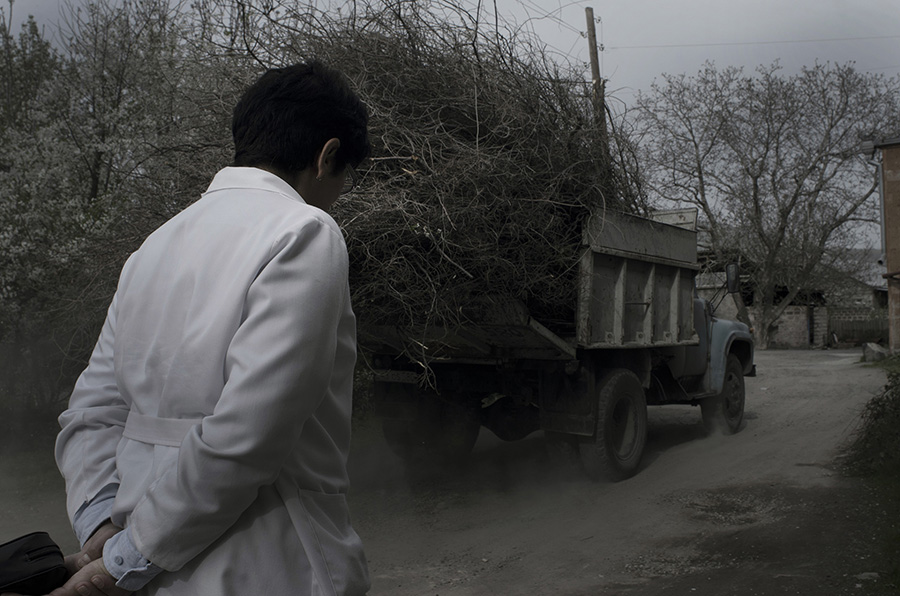
Yeghiazaryan comes back from a regular round in Nor Gyugh village.
This is overtopped by the situation in the traditional Armenian family, especially in the villages, where they are to live with their parents-in-law and even with the parents of the latter. The bride of the family must humbly serve everyone, do what everyone expects of her, never argue, care for children and adults, and as a consequence of this there comes neurosis, which can entail malfunctions of the thyroid gland, and the latter can entail tumors in the breast glands.
The doctor’s office in Kotayk village. Carrying out an eye exam of a young man who complains of eye ache.
Yeghiazaryan inquires the woman about the condition of her mother who has suffered a stroke. The village of Hatis. Another old woman in the next room is the young woman’s mother-in-law and has suffered a stroke too.
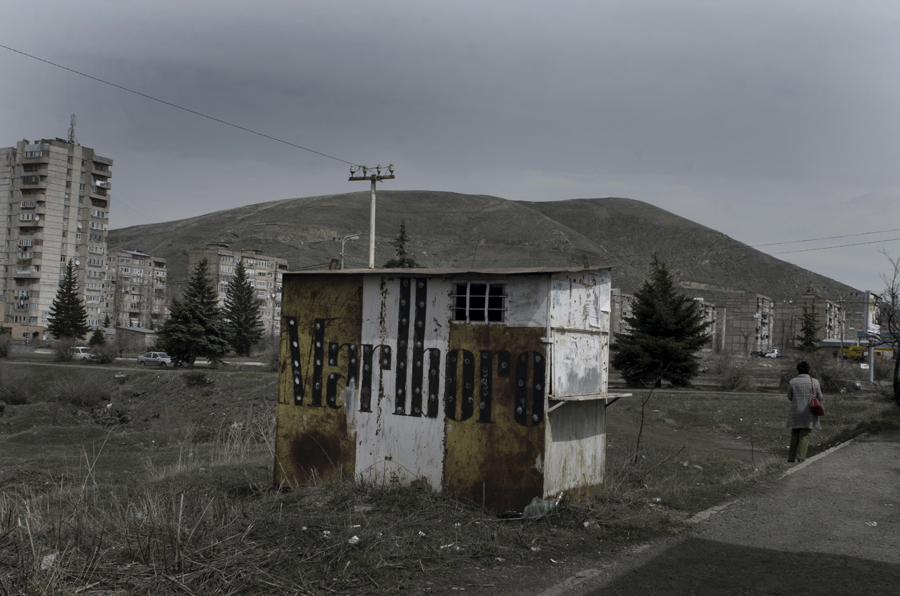
The doctor is leaving the building of the regional administration in the town of Hrazdan.
The mission of a family doctor and the Office of the family doctor work only at the villages of Armenia, but in Yerevan and other big cities it does not operate as such. Different clinics, various laboratories, diagnostic centers are available there, and the family doctor as such gets paralyzed there, turning into a local therapist. But in a village there exist you, your skills and your patient. In a village a family doctor becomes a professional.”


